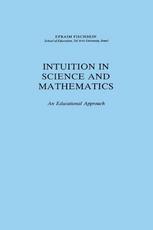

Most ebook files are in PDF format, so you can easily read them using various software such as Foxit Reader or directly on the Google Chrome browser.
Some ebook files are released by publishers in other formats such as .awz, .mobi, .epub, .fb2, etc. You may need to install specific software to read these formats on mobile/PC, such as Calibre.
Please read the tutorial at this link: https://ebookbell.com/faq
We offer FREE conversion to the popular formats you request; however, this may take some time. Therefore, right after payment, please email us, and we will try to provide the service as quickly as possible.
For some exceptional file formats or broken links (if any), please refrain from opening any disputes. Instead, email us first, and we will try to assist within a maximum of 6 hours.
EbookBell Team

4.7
16 reviewsIn writing the present book I have had in mind the following objectives: - To propose a theoretical, comprehensive view of the domain of intuition. - To identify and organize the experimental findings related to intuition scattered in a wide variety of research contexts. - To reveal the educational implications of the idea, developed for science and mathematics education. Most of the existing monographs in the field of intuition are mainly concerned with theoretical debates - definitions, philosophical attitudes, historical considerations. (See, especially the works of Wild (1938), of Bunge (1 962) and of Noddings and Shore (1 984).) A notable exception is the book by Westcott (1968), which combines theoretical analyses with the author’s own experimental studies. But, so far, no attempt has been made to identify systematically those findings, spread throughout the research literature, which could contribute to the deciphering of the mechanisms of intuition. Very often the relevant studies do not refer explicitly to intuition. Even when this term is used it occurs, usually, as a self-evident, common sense term.